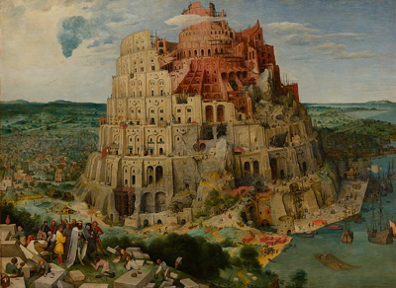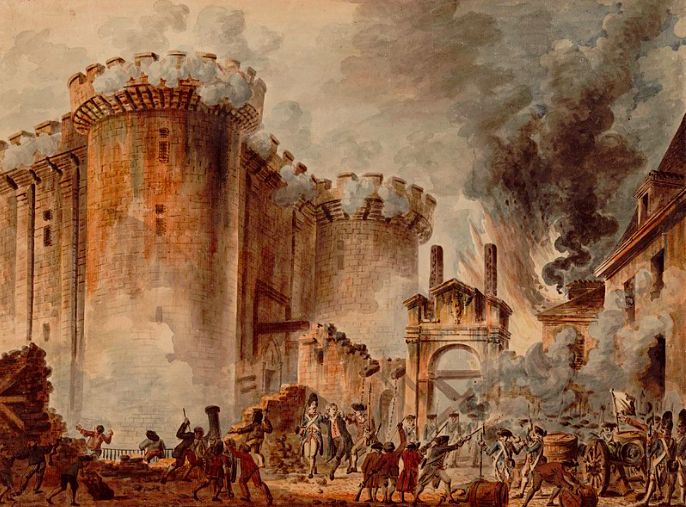You, me, and Napoleon: We all had trouble speaking French – what’s your experience?
These four articles about learning French will ruffle a few feathers.
- That’s because my essays are full of subjective statements about how bloody hard French is to learn. This is especially so, I point out, for anyone not lucky enough to be young and locked up in a garret in Paris with a French lover—with the deliberate intention of doing nothing else but learn French.
- There is no doubt that being fluent in French is a great asset. It unlocks many doors to wonderful new worlds of literature, art, culture, food, wine, and travel.
- So there are all kinds of reasons to give it a go.
- And remember that any of the subjective conclusions I present about the difficulties of learning French are encountered by all those poor people who have decided to learn English. Because, with a whole host of complexities, exceptions to most rules, and regional and national eccentricities, it must be pretty close to living in hell to learn.
But have a look at what I’ve written and draw your own conclusions.
And then please write down what you think:
—whether it’s about the lead balloon feeling that follows when you’ve tried to tell an Anglo Saxon joke in French,
—or the fun you’ve had looking for the well-hidden @ on a French keyboard with a restless queue behind you waiting for their turn on the computer.
—Or when the faux pas you’ve uttered is one that will haunt you for years in the small hours of the morning.
But always remember: the French invariably take it as a compliment when they encounter foreigners struggling with their language—after all, Napoleon did too—and so do they, sometimes. And forget about the pure, upmarket, academic French that the Académie française would like everyone to speak—almost no one does. (But don’t tell anyone I said so.)
So, essayons d’essayer. Let’s speak French!
I look forward to my prejudices being shattered or reinforced by your comments.
Ray Johnstone
Part 1 French language trouble: The race is on — can you relate?
The trouble with French is that it’s impossible to learn! Yes, it is. Especially for older people. Well, that’s certainly been the case for one old person — i.e. me.
Let me elaborate…To kick-off, I’ll set out my (very thin) credentials: I’m an elderly, probably prejudiced, mildly dyslexic, but ardent francophile who has lived in France for almost a quarter of a century.

And, although I’ve tried really, really hard to speak good French, helas, the language I’ve learned falls far short of what the l’Académie française would like me to speak. (After all, eliminating the ‘impurities in French’ is their raison d’être.)
What I speak, is a colloquial, regional language, perfect for interacting with the locals—because it’s what they speak. And it works well, down here in la France profonde.
So I can and do get on famously with the neighbourhood villageois, many of whom don’t really speak French the way l’Académie would like them to either. Most communicate in a hearty amalgam of patois, slang, gros mots, and Occitan or lenga d’òc.
And when my pétanque mates talk to me, they moderate their language, using a somewhat more standard French than they do amongst themselves. No doubt in the hope that it will help me to understand them better. And, luckily, it works!
But it’s certainly not the textbook French taught in schools or spoken on France 2 and around the Île-de-France.
Why? Because good French is so bloody hard to learn, that’s why… Read Part 1 here
Part 2 French language trouble: Who’s winning? — Can you relate?
The trouble with French is that it’s so hard to learn. Even Napoleon couldn’t speak it. Not very well, anyway. Poor old Napoleon. How the mighty must fall. From adulterer to cuckold; from Emperor to divorcee. Beaten on the Nile; at Trafalgar; and again at Waterloo; then exiled to the back-blocks of Elba, and later to St Helena, where he died. And, quel scandale—where he had his willy whipped off during an autopsy.


After all that he did for France—and for civil codes around the world—it comes as some surprise that his French was not up to speed. He always spoke with a strong Corsican accent and his spelling and grammar were, apparently, appalling. Welcome to the club—after a quarter of a century in France, my French is not very good either.
Why? Because it’s so bloody hard to learn that’s why.
Although the Brexit civil war is calming down (a bit), the long-standing English versus French language rivalry still flourishes. Especially, the debate about which of the two will be more widely spoken in the future.
Not that any of this speculative ranking matters much—or even at all. Because it’s probably only really interesting to language jingoes. And others who waste their time obsessing about the relative importance of English versus French. Or those intent on fanning the historic rivalries between these two neighbours separated by the narrowest of narrow strips of water. And who have either been in bed with each other—or at each others’ throats—for centuries.
But along the way, the rivalry does reveal some interesting insights into how Anglo Saxons and the French see each other. Read Part 2 here
Part 3 Trouble with French: The home straight — Can you relate?
The trouble with French is that it’s so hard to learn that even the French couldn’t speak it—for years and years and years.
Hélas, the French have always had trouble with their French.
– At the time of the French Revolution in 1789, an estimated 50 percent of French citizens did not speak French at all. And only 12 percent spoke it ‘fairly well’.
– France was a Tower of Babel with the vast majority of French citizens speaking one of France’s many dialects or patois. Except in the larger cities, almost nobody spoke the French of revolutionary political debates and the administration.
This language diversity was seen as anti-democratic. The Revolutionary leaders felt it limited the ability of French citizens to practice their individual rights. The solution was for all dialects to be eradicated, and for French to be imposed on the population.

When primary school was made compulsory in the 19th Century, the state decreed that only French would be taught. Teachers were instructed to severely punish any pupil speaking in patois. ‘Vergonha’ is the Occitan word for ‘shame’. It was the policy of humiliation and discrimination used in schools to make French minority groups feel ashamed of their mother tongue.
As late as 2008 l’Academie francaise voiced its absolute disapproval of regional languages. It held that any recognition was tantamount to ‘an attack on French national identity’.
Although it may not yet have completely conquered the globe, English has gradually expanded on every continent. And French is definitely falling behind in the race.
Why? Read Part 3 here
Part 4 French language trouble: And the winner is… do you care?
The trouble with the French language is that Air France pilots can’t speak it either. Even when they’re approaching Charles de Gaulle Airport, they’ve been ordered to speak English. And this includes when they’re talking to native French air traffic controllers.
Quel scandale !
Could the French language have brought down the Bastille?
Had the Bastille still been standing in 2021, French aircrews would have pulled it down.
Here’s why: Aviation English has long been the de facto language of the International Civil Aviation Organisation. And the rationale is that it’s essential for ALL aircrews to understand ALL conversations with air traffic control, including those of both French and foreign airlines. So Air France now accepts that, in the interests of safety, it is time to shift to the international standard: everyone must speak English. And the ICOC won’t take “Non!” for an answer from the national carrier’s cockpit crews.

The cross-fertilisation of the French language
The Académie française is both revered and ridiculed in equal measure. Although languages tend to borrow from each other all the time, French has never been keen on any of that cross-fertilisation stuff. But as technology advances and cultural shifts occur, fresh words and expressions are continually being spawned to cover the latest concepts. Every day there are new words queueing up to potentially corrupt and pollute the French language. This avalanche of English colloquial expressions continues to play havoc with l’Académie’s language purists.
Expressions like ‘bad hair day’, ‘carjacking’, ‘road rage’, and ‘soccer mom’ are almost impossible to translate into other languages. For many, the English phrase is hard to resist… Read Part 4 here
So, essayons d’essayer. Let’s speak French!
I look forward to my prejudices being shattered or reinforced by your comments.
Thank you – Ray Johnstone
Are you a French language student? Can you relate to the difficulty Ray has been experiencing? Please share your experiences and opinions in comments below.






